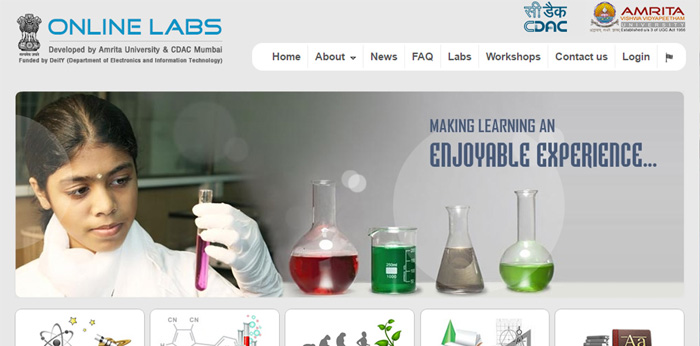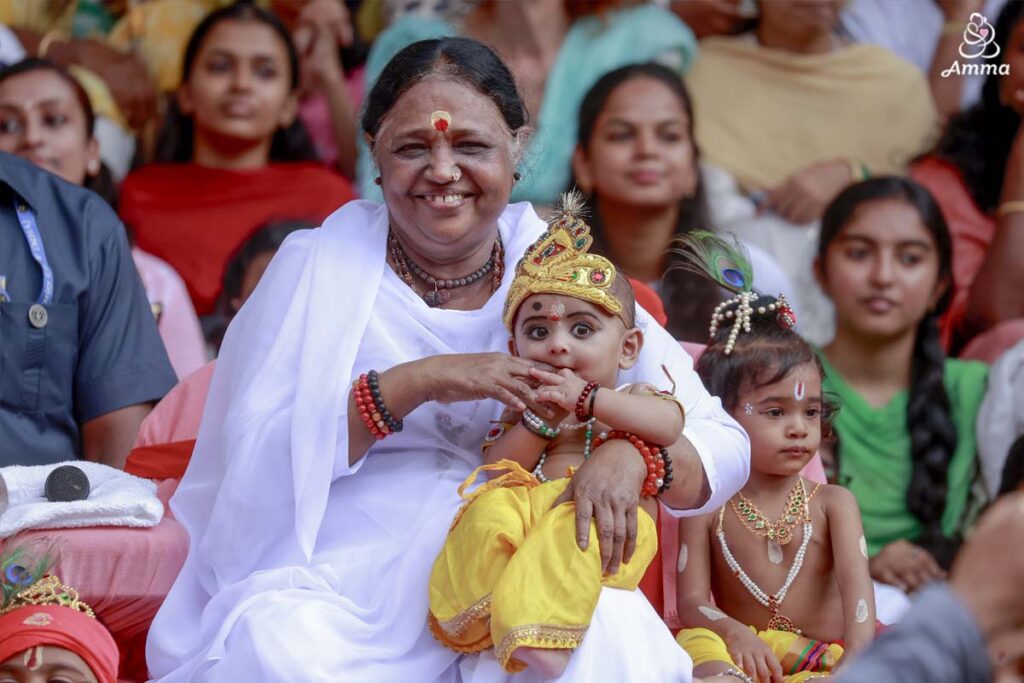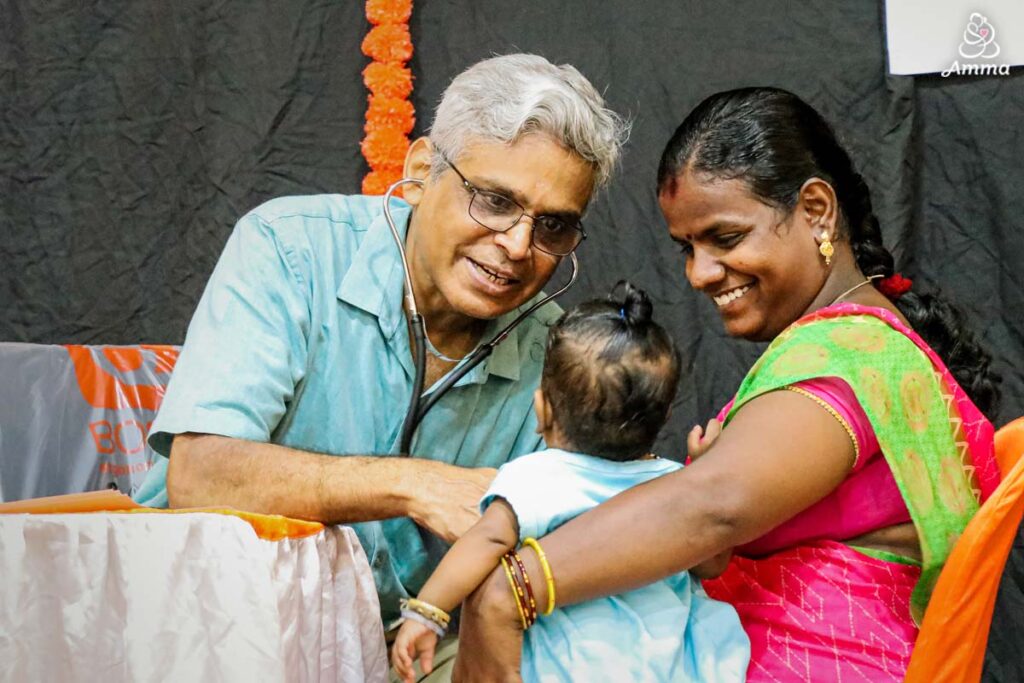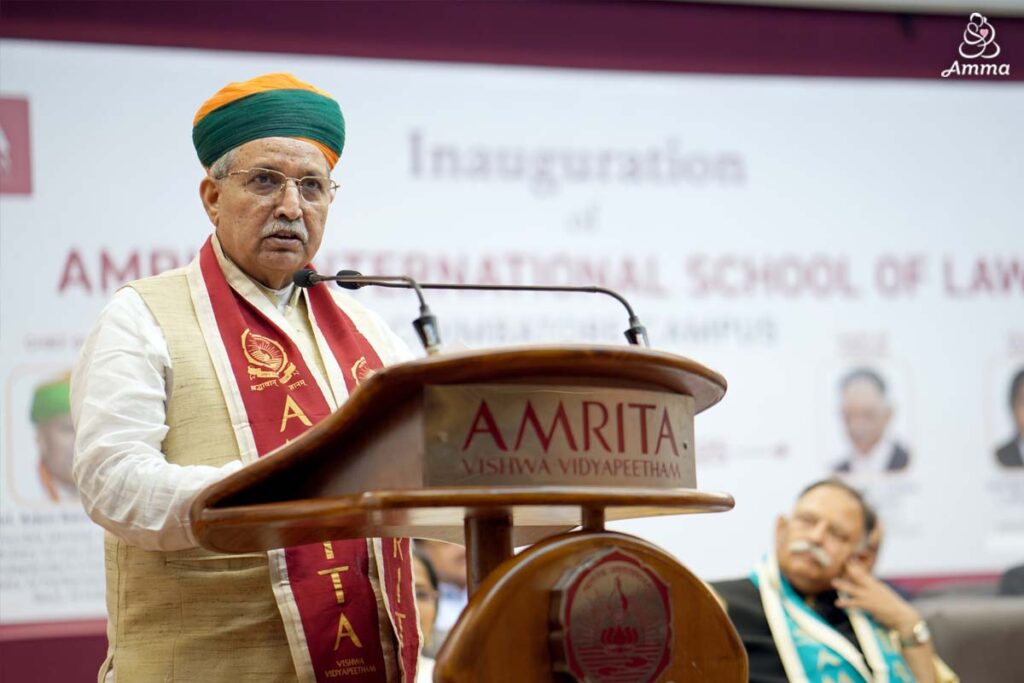Amrita Vishwa Vidyapeetham and the Govt of India continue to collaborate to provide free online access to lab training for students across the country.
Faridabad, Haryana
As the country’s latest National Education Policy (NEP) celebrates its second year, online access to India’s education system remains key for the Central Government. This includes expanding the OLabs project, an initiative developed with Amrita Vishwa Vidyapeetham to provide online labs and learning for school children throughout the country. A fundamental element is that access is free-of-cost to one and all who register.
“Along with incorporating India’s culture and knowledge tradition in NEP 2020, the way has also been opened to incorporate innovations, thinking, and modernity from all over the world, and there is no place for narrow thinking in it,” said the Hon’ble Amit Shah, Union Home Minister.
“The main objective of this policy is to groom such students who have a sense of national pride as well as world welfare and have the potential to become a global citizen in the true sense. One can acquire a good position in life through rote learning, but a person cannot gain respect.”
Of course, nothing can replace the hands-on experience of laboratory work. Watching bacteria interact with each other through the lens of a microscope, for example, is an exciting assignment. However, labs are often not within reach of school children due to distance and cost, especially across rural India.
Amrita and the Central Government’s C-DAC Mumbai (Centre for Development of Advanced Computing) first partnered in 2011 to develop online systems to simulate traditional lab work. Today, OLabs reaches nearly four lakh school children, 8,000 schools, and 28,000 teachers.
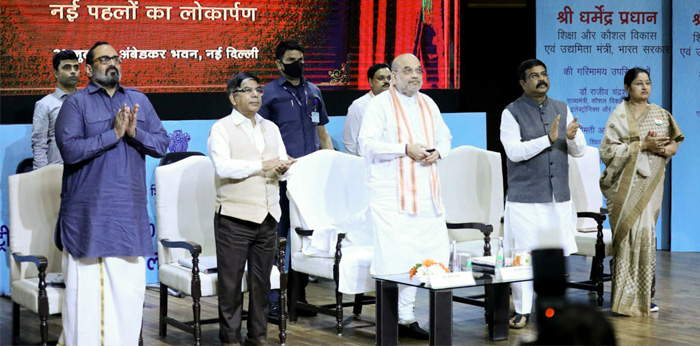
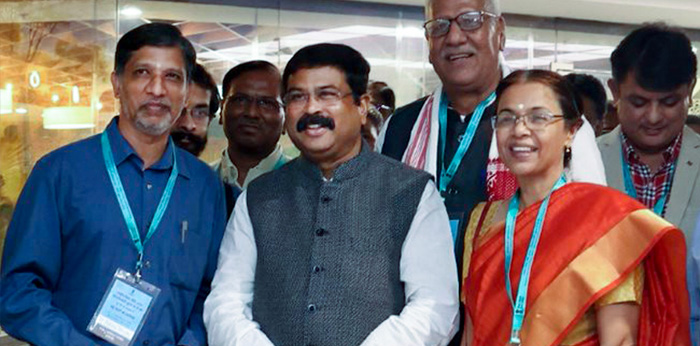
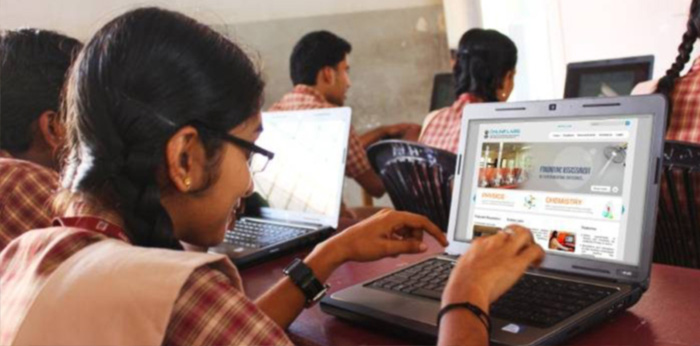
Dr. Prema Nedungadi is the Director of AmritaCREATE, the Amrita Center for Research in Analytics, Technologies & Education, and Chairperson, School of Computing, Amritapuri campus. She explained: “OLabs is closely aligned with NEP 2020 and endeavours to make digital learning through online laboratories equitable and accessible.
Over the years, the online labs developed have been well received by teachers and students with requests for new labs in different languages, subjects, and grades. We are working towards realizing Chancellor Amma’s vision to make quality education accessible by reaching the remotest corners of rural India.”
More than 200 online labs have been developed with funding from the Ministry of Electronics & Information Technology and the Ministry of Education via collaboration between the university and the C-DAC (Centre for Development of Advanced Computing).
OLabs already provides online Physics, Chemistry, and Biology lab experiences for classes 9 to 12 and lessons for Mathematics and English for classes 9 to 10. Labs are available in four languages: English, Hindi, Malayalam, and Marathi. Now new labs will include Computer Science, Augmented Reality & Virtual Reality experiences, as well as lessons to reach children in classes 6 to 8.
Eventually, 750 online labs in Science and Mathematics and 75 skilling e-labs for simulated learning environments are planned to be set up. The labs will be hosted on the Diksha platform (Digital Infrastructure for Knowledge Sharing).
OLabs includes training and support for educators using the platform, which further strengthens the ability of students to compete with children in better equipped schools. In the big picture, the project builds a tremendous bridge across economic and geographical divides and carries a huge potential to expand knowledge access to all strata of society, to instil self-confidence in both students and teachers, and to open new trajectories for future learners.
An example of an OLabs video.


